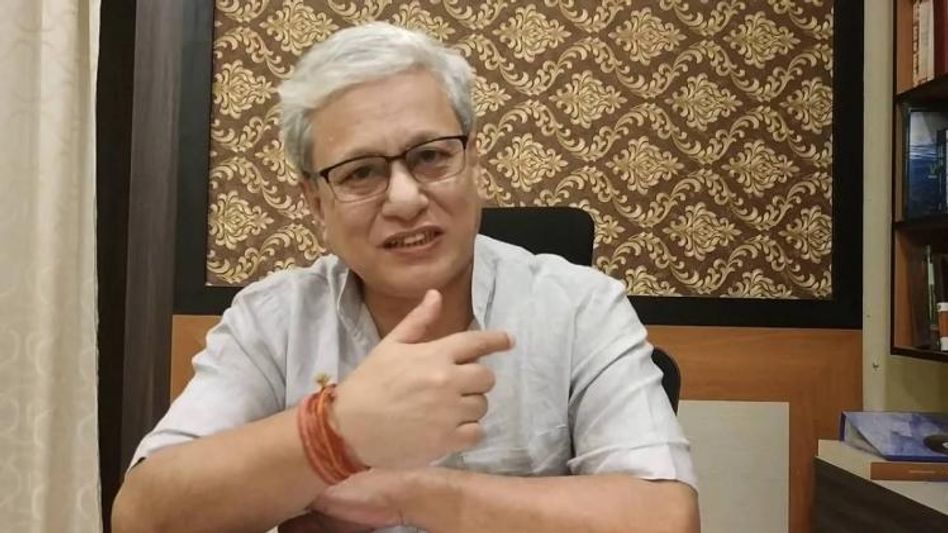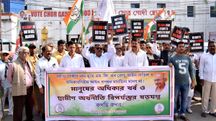Tripura's 'bio-villages' aim to provide sustainable livelihood opportunities: Deputy CM
Deputy Chief Minister Jishnu Dev Varma said that the Tripura government has set out on a quest to provide sustainable livelihood prospects in rural areas through its "bio-village" programme.
 Deputy Chief Minister of Tripura - Jishnu Dev Varma
Deputy Chief Minister of Tripura - Jishnu Dev VarmaDeputy Chief Minister Jishnu Dev Varma said that the Tripura government has set out on a quest to provide sustainable livelihood prospects in rural areas through its "bio-village" programme.
In the Sepahijala district, five such villages with bio-gas power plants, better cattle breeds, solar-powered agricultural equipment, and energy-efficient electrical gadgets have already been built, and five more will do so shortly, according to him.
According to Dev Varma, the scheme has increased household income by Rs 5,500 each month, and it has benefited over 500 people.
He said farmers have been taught simpler techniques of mushroom cultivation and installation and maintenance of biogas units and bio-composting.
He added the project intends to ensure comprehensive socioeconomic growth among rural areas by utilizing climate-friendly technologies.
Debbarma told the media, "It has been a successful experiment and we will strive to reproduce the model in additional villages as it is environment-friendly, sustainable, healthful, and advantageous for the rural people.
Sumita Debbarma, a 40-year-old inhabitant of the tribal community of Borkurbari in the Sepahijala area, was pleased with her earnings after selling four Hampshire breed piglets in the neighbourhood market for about Rs 20,000.
Thanks to the Department of Biotechnology's "bio-village" initiative, she also sells ducklings of the Khaki Campbell breed, bringing in an additional Rs 6,000 every month.
Gurudas Debbarma, a septuagenarian, claimed that he was given a solar pump for irrigation with which he cultivates vegetables and crops all year long, increasing his income.
"The idea of a bio-village promotes the use of organic farming methods in a specific area along with other environmentally beneficial agricultural elements. But the goal of our approach is to ensure socio-economic advancement in order to achieve sustainable growth. It also focuses on providing multi-entrepreneurial support to minimize the risk of failure due to natural disasters," he said.
The modified bio-village model, according to Sengupta, "envisages full community participation and gives beneficiaries authority for planning, creating, and choosing components of their choice."
Villagers can select from a variety of environmentally friendly elements to get the best returns in terms of money as well as other indices like comfort and satisfaction. The concept, which began as a pilot in one hamlet, has now been expanded and it improves the rural economy overall, he said.
The initiative includes choices including setting up a bio-gas unit, a solar pump, a biomass stove for street lights, biotech kits with bio-fertilizer and insecticide for agriculture, and fish farming and animal husbandry.
Beneficiaries can select between four and five components based on their potential, interest, and available resources.
"Five kilometers from Bishramganj Bazar, Borkurbari is likely the first tribal community in India to be transformed into a bio-village. The project is well-liked by the locals "said Sengupta.
According to him, the majority of the recipients are female and have mastered mushroom growing, which has given them additional money. He stated that bio-villages like Das Para, Kharangsingh Para, and Fatikcherra are changing people's economic circumstances for sustainable development.
Copyright©2025 Living Media India Limited. For reprint rights: Syndications Today









